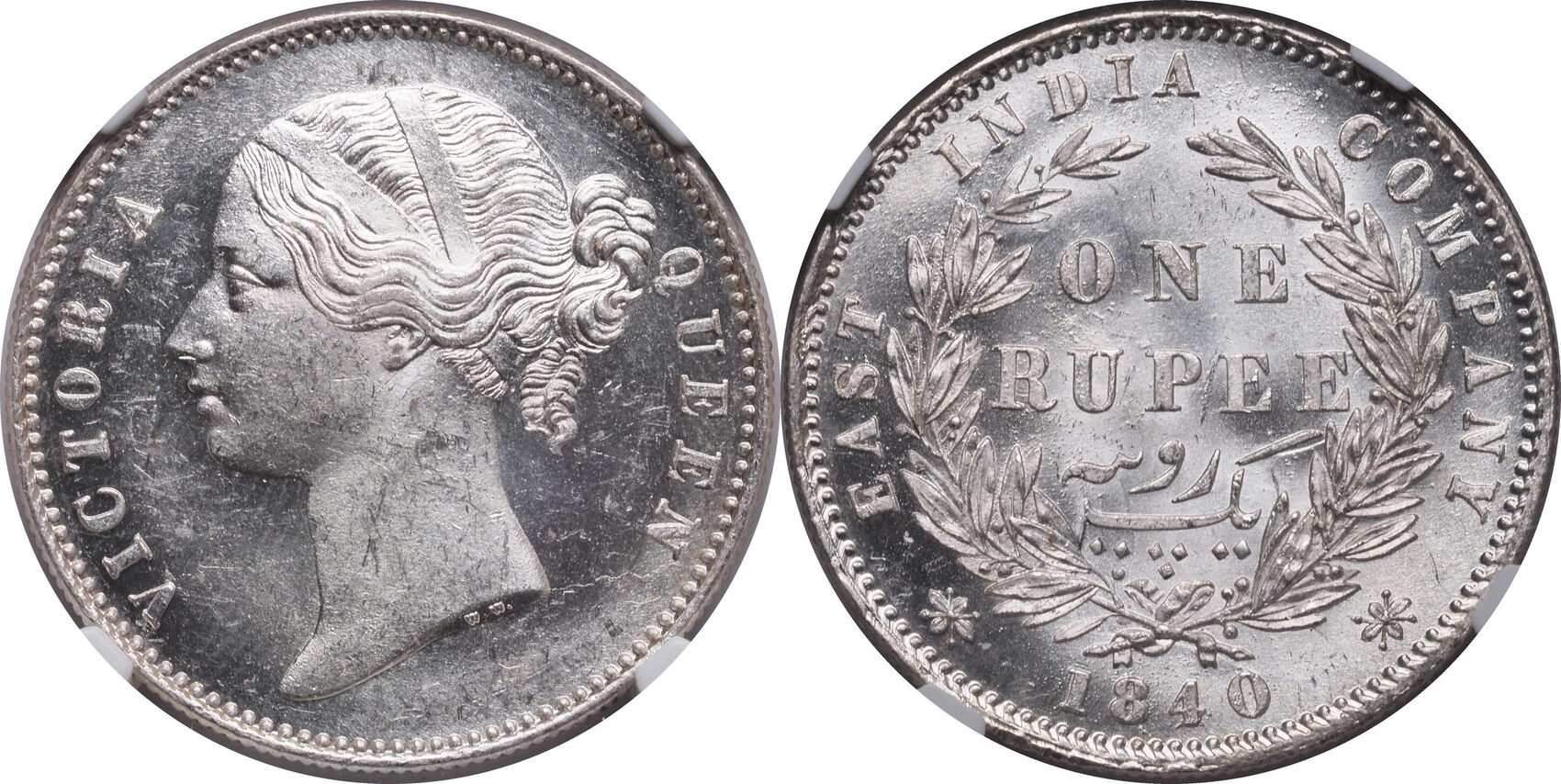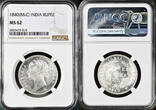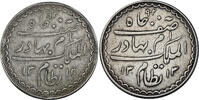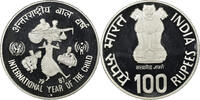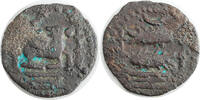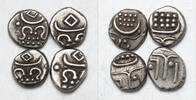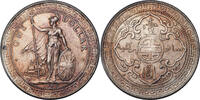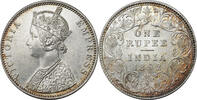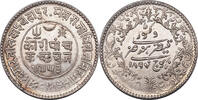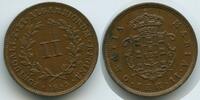MA-ID: 68402454
Bewertungen Stankov
O.K.
Gran profesional,todo perfecto
ok
Everything OK.
India British 1840 India (British), Queen Victoria. Silver Rupee Coin. NGC MS 62
Filip Stankov eU 

2
Seit 2 Jahren bei MA-Shops
435 Bewertungen,
100 % Positiv (seit 24 Monaten)
Weltweiter Versand
145,00 EUR
Rabatt 50,00 EUR / 26%
Differenzbesteuert nach §25a UStG
zzgl. 12,00 EUR Versand ( nach Deutschland )
Lieferzeit: 6 - 10 Tage*
zzgl. 12,00 EUR Versand ( nach Deutschland )
| Bestellhotline +49 (0)2871 2180 383 |
| Zahlungsarten |
| Überweisung |
 Zertifizierungsinformationen
Zertifizierungsinformationen
Mint Year: 1840
Denomination: Rupee
Mint Place: Calcutta or Bombay
Condition: Certified and graded by NGC as MS-62!
Reference: KM-458.2. (28 berries, raised W.W. initials)
Material: Silver (.925)
Weight: 11.66gm
Diameter: 31mm
Obverse: Young head of Queen Victoria left. Raised (W.W.) initials on bust truncation.
Legend: VICTORIA QUEEN
Reverse: Denomination (ONE RUPEE) within wreath. Small diamonds below inscription, 28 berries in wreath.
Legend: EAST INDIA COMPANY * 1840 *
The East India Company (also the East India Trading Company, English East India Company, and then the British East India Company) was an early English joint-stock company that was formed initially for pursuing trade with the East Indies, but that ended up trading mainly with the Indian subcontinent and China. The oldest among several similarly formed European East India Companies, the Company was granted an English Royal Charter, under the name Governor and Company of Merchants of London Trading into the East Indies, by Elizabeth I on 31 December 1600. After a rival English company challenged its monopoly in the late 17th century, the two companies were merged in 1708 to form the United Company of Merchants of England Trading to the East Indies, commonly styled the Honourable East India Company, and abbreviated, HEIC; the Company was colloquially referred to as John Company, and in India as Company Bahadur (Hindustani bahadur, "brave").
The East India Company traded mainly in cotton, silk, indigo dye, saltpetre, tea, and opium. However, it also came to rule large swathes of India, exercising military power and assuming administrative functions, to the exclusion, gradually, of its commercial pursuits. Company rule in India, which effectively began in 1757 after the Battle of Plassey, lasted until 1858, when, following the events of the Indian Rebellion of 1857, and under the Government of India Act 1858, the British Crown assumed direct administration of India in the new British Raj. The Company itself was finally dissolved on 1 January 1874, as a result of the East India Stock Dividend Redemption Act.
The Company long held a privileged position in relation to the English, and later the British, government. As a result, it was frequently granted special rights and privileges, including trade monopolies and exemptions. These caused resentment among its competitors, who saw unfair advantage in the Company's position. Despite this resentment, the Company remained a powerful force for over 200 years over India.
| Versandkosten | ||||
|---|---|---|---|---|
| bis 70,00 EUR | 100,00 EUR bis 300,00 EUR | 300,00 EUR bis 2000,00 EUR | 2000,00 EUR bis 35000,00 EUR | |
| Deutschland | 10,00 EUR | 12,00 EUR | 15,00 EUR | 25,00 EUR |
| Österreich | 8,00 EUR | 10,00 EUR | 12,00 EUR | 23,00 EUR |
| Vereinigte Staaten von Amerika | 50,00 EUR | 50,00 EUR | 50,00 EUR | 35,00 EUR |
| Europäische Union | 10,00 EUR | 15,00 EUR | 20,00 EUR | 25,00 EUR |
| Welt | 13,00 EUR | 15,00 EUR | 25,00 EUR | 35,00 EUR |
Frankreich 1791 100 Livres Louis XVI - 19-06-1791...
Numiscollection
126,00 EUR
Aus Ansicht entfernen
Informationen zum Kauf bei MA-Shops
Bestellungen bei MA-Shops sind jederzeit möglich und werden innerhalb von 2-4 Arbeitstagen verschickt.
Ein über die MA-Shops abgesicherter Kauf findet niemals außerhalb von MA-Shops statt.
Bestellen Sie sicher online mit dem MA-Shops Warenkorb.
Vielen Dank.
Ein über die MA-Shops abgesicherter Kauf findet niemals außerhalb von MA-Shops statt.
Bestellen Sie sicher online mit dem MA-Shops Warenkorb.
Vielen Dank.
|
Verkäufer-Startseite | 0Warenkorb | AGB | Impressum | MA AGB | Datenschutzerklärung | Garantie | MA-Shops Neuzugänge Copyright ® 2001-2025, MA-SHOPS Muenzen All Rights Reserved. Designated trademarks and brands are the property of their respective owners. |
 Münzen beim Fachhändler kaufen
Münzen beim Fachhändler kaufen


